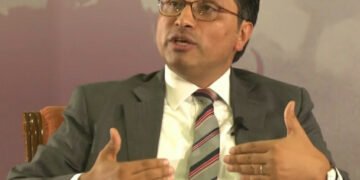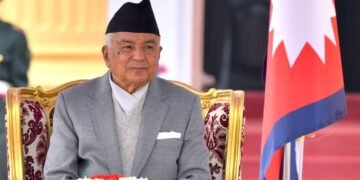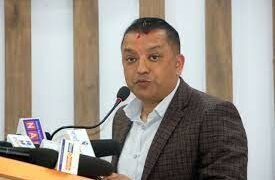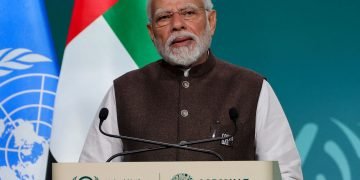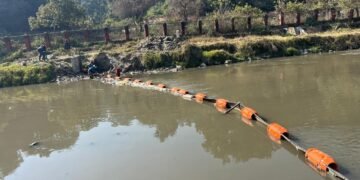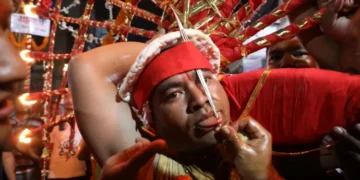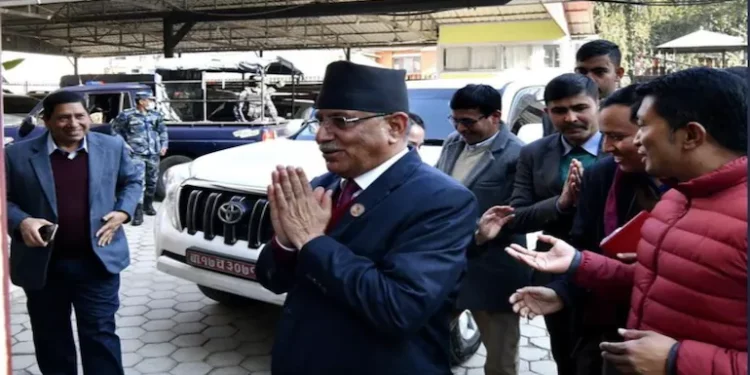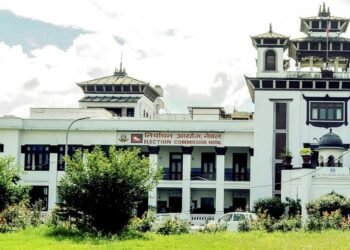Kathmandu: CPN (Maoist Centre) Chairman Pushpa Kamal Dahal ‘Prachanda’ has said that there was no option but to unite to ensure the lasting peace in the country by completing the remaining tasks of the peace process. For this, he has appealed for partnership of the stakeholders of the Comprehensive Peace Accord (CPA).
At a dialogue programme on a decade of implementation of the constitution organized by Constitution Watch Group and Institute for Strategic and Socio-Economic Research in Kathmandu on Sunday, the former Prime Minister said the stakeholders of the CPA should join hands together no matter there were massive criticisms on constitution from the rightist groups.
He stated that people’s discontent will exacerbate if the two major political parties in the government failed to deliver to meet the public aspirations. Saying that people were expecting good-governance, social justice and economic prosperity, Prachanda described the development made in the areas of physical development, education, health care, roads and drinking water and other sectors were on positive paths.
He, however, said that the political leadership and forces should have a thorough self-assessment as they have failed to deliver to meet economic prosperity in the country. The Maoist Centre Chairman said a national unity and perspective was required after a critical review from the judicial sector and intellects, among others.
Prachanda reiterated that efforts to amend the constitution to seize inclusive representation and identity established as the achievements of the movement were not acceptable for his party. Also speaking at the event, CPN (UML) general secretary Shankar Pokhrel said the province and local levels have faced challenges to work as to achieve the goals of development and prosperity as the province and local levels were not given handed over rights as per the aspirations of the constitution. He viewed that review of the achievements made so far should be done in constitution and political stability should be given by its amendment.
Similarly, NC Spokesperson Dr Prakash Sharan Mahat argued the lawmaking process would not gain pace until we set timeframe of registration, amendment and passage the bills from parliament. “When it comes to the amendment of constitution, we are not retracting from proportional and inclusive systems. The ordinances were brought based on need,” he informed.
According to him, positive thoughts of possibility is essential in the country where development and progress are awaited. Dr Mahat suggested encouraging private sector for thriving national economy. On the occasion, RSP Chief Whip Santosh Pariyar said his party would extend support to the amendment of national charter if it was aimed at consolidating federalism and inclusive system. Chairman of the Janamat Party, CK Raut, said Nepal could see political stability and prosperity once it adopted the system of directly elected executive president and selection of office bearers at constitutional bodies through election.
Constituent Assembly member Agni Kharel warned that if the political parties continued only thinking for their convenience and comfort, it could create adversity to the country. Former Chief Justice Kalyan Shrestha regretted that the general expectation of positive development during the promulgation of constitution was fading, which is a serious issue. “Bills do not deserve to be Acts. Independent bodies must not be made pliant,” he argued, raising question: “Are the rights stated in constitution put into practices?” The constitutional expert also suggested reviewing whether province, republic, secularism, public service were reflected in implementation.



